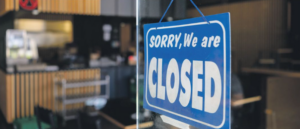A year on from COVID-19 hitting New Zealand’s shores, we talk to the Ministry of Business, Innovation and Employment’s Chief Economist, Donna Purdue, about the small business opportunities and challenges the pandemic has presented.
How close are we to getting back to normal?
Normal is broken. There’s a sense that people want to go back to what they had before, but the world is not going to return to exactly how it was pre-COVID.
For some small businesses, the new-normal has the potential to make life easier. The move to digital means they’re able to offer their products or services online, giving them much wider reach. Their customer-base might previously have been confined to a 10km radius of their physical location, but post-COVID, after having to go online, there’s a realisation that it’s a big world out there.
Also, some small businesses have found that once the hard yards of getting their business online was done, they now have a lot more freedom. Being online can make repetitive and manual tasks much faster, giving them some time back to do other things they care about.
The Government is helping small businesses move to digital with the Digital Boost free training.
Is COVID-19 a once-in-a-lifetime disruption?
Further disruption is inevitable, and it could come when we least expect it. As a business owner or manager, it’s something you need to prepare for.
Businesses will face many disruptions over the next 20-30 years. Not just from other potential pandemics, but also things like aging populations, growing resource scarcity, increased frequency of weather related events, and the shifting global growth dynamics from Western economies to Asia. These are the so-called megatrends or structural drivers of change.
On top of that, because of those drivers, you’re also getting transformational shifts in things like business models, for example to circular models, and economic frameworks, like wellbeing economies.
How can small businesses prepare for these disruptions?
Trying to look up and out of your business is a key part of being prepared for disruptions. Ask yourself how you can take note of the changes that are happening around you, how you can seize opportunities from these changes and how you might transform your business to make the most of these opportunities.
Toward the end of last year my team did some research looking at businesses response to COVID, and found that many businesses took a dual approach. In other words, they looked to cut costs in the short term while also investing in the long term.
It’s tricky for small business owners to find the time to do both, but if you can, try to carve out even an hour a week to work on your business, rather than in it, so you can look at the bigger picture and get a better sense of what’s happening out in the world. Think about the capabilities that you hold in your business and how else you could potentially use those capabilities if you could no longer do what you currently do.
COVID has made people reflect on what they truly value, both for businesses and their customers.
I think it has made people think about the purpose of their business. What are they trying to achieve? Are they purely focused on profit, or is helping the community and protecting the environment more of a priority?
It’s also changed employees’ expectations around remote working and flexibility, and that’s something employers need to take into account now. It’s opened employees’ eyes to the fact they don’t need to be in a big city, you can achieve a decent lifestyle and work opportunities in the regions.
What about consumers?
A lot of consumers are more aware of where they’re spending their money and who they’re supporting. COVID has made a lot of people place more value on buying local products.
It’s looking likely that we’ll have some form of border restrictions for the next couple of years. That’s a good length of time for a more permanent behavioural shift towards supporting local goods and services.
This is a good time to showcase your value-add and build a strong, local brand. As a small New Zealand business with our borders closed you can tell a really strong story about the impact you’re having on your community and your environment and get that competitive edge.
Is now a good time to rethink supply chains?
COVID-19 has highlighted the vulnerability of long supply chains, goods are getting delayed because of factory closures overseas and shipping delays.
Businesses are starting to look at how they shorten up their supply chains and if they can potentially source what they need domestically.
It might be cheaper to buy offshore in the short term, but longer term, from a resilience perspective, it might make more sense to source at least some of your supplies domestically.
I think it’s a huge opportunity for New Zealand to reset. Together as a country, we need to think about what we want to be known for. To think about what our value is and who we want to be as a nation?
There’s a call to ‘build back better’ but we have to have a vision of what that looks like, so we can build towards it. So, I think there’s a real opportunity to start thinking about how as a country we create value, for current generations and also future generations.
Is now a good time to be a New Zealand brand internationally?
New Zealand is absolutely in the international spotlight at the moment. We’re in an enviable position because of our COVID response. We’ve also been getting attention because of our Wellbeing Budget and for acknowledging a climate crisis. So we’re seen as being at the forefront of a lot of innovative thinking.
It’s a big opportunity, but also a huge risk if we don’t deliver, and can’t actually show that we’re walking the talk on tackling these issues.
What’s the outlook for the local economy this year?
I think it’s going to be a rocky ride. Until we can get widespread vaccine rollout we are going to be at the whim of small outbreaks. Until our borders open, it’s obviously going to be tough for anyone exposed to tourism, transport or hospitality.
That said, there are some positive signs. Many of our farmers have had a fairly good season and are getting good prices, which should hold rural communities in reasonably good stead. The construction and government sectors are also creating jobs around the country, helping to offset some of the job losses in the tourism and hospitality sectors.
How will the global economy impact us?
We’re really dependent on the rollout of vaccines globally. There’s a huge amount of uncertainty about how that’s going to go and what that means in terms of us opening our borders. But there are some really encouraging signs.
China has recovered reasonably well, that’s supporting our export sector. There’s the huge stimulus package in the US, the UK seems to be rolling out its vaccine quite successfully, and Australia is managing to contain the virus well increasing the likelihood of a travel bubble in the near future.
SOURCE: Business.govt.nz
BusinessCOVID-19economySmall Businesses




